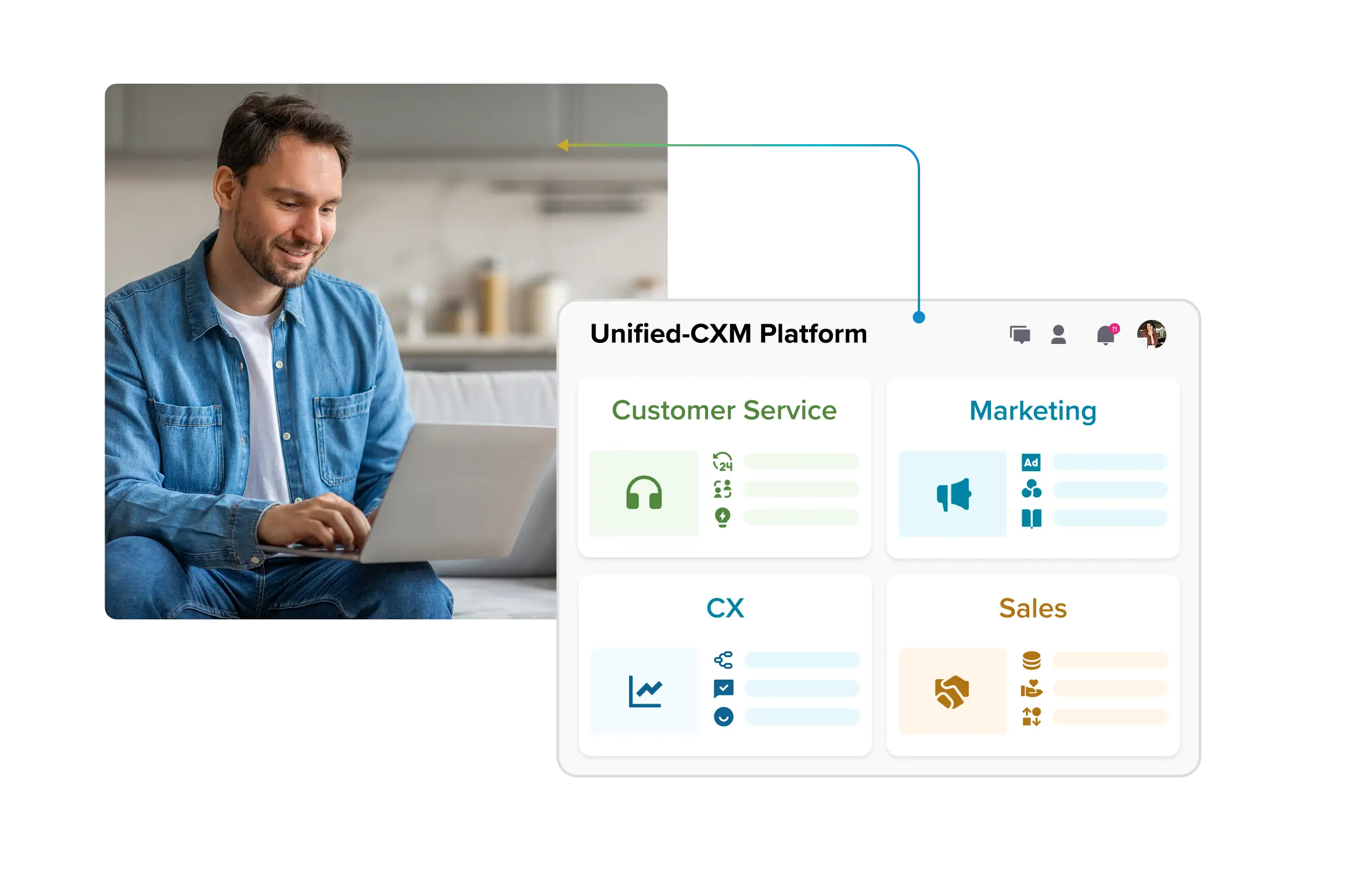The strategic AI-native platform for customer experience management
The strategic AI-native platform for customer experience management. Unify your customer-facing functions — from marketing and sales to customer experience and service — on a customizable, scalable, and fully extensible AI-native platform.

The power of technology and humans when they deliver anticipatory, proactive service
In this article, customer experience (CX) thought leader Micah Solomon encourages brands to intelligently adopt and deploy technology in a way that will help distinguish their customer service function and in turn CX and set them apart from their competitors in the market.
Ever since we opened our first business – whether that’s a sidewalk lemonade stand or another simple business, we’ve understood the basics of success: the customer hands over money, and the proprietor provides a service or product, maybe mowing your lawn or dispensing a cup of lemonade.
However, unless you're the most persuasively adorable kid or command the most convenient location in your neighborhood for your lemonade stand or lawn-mowing business, doing business in this basic way will leave your little business as nothing more than a commodity. Even if everything is quote-unquote “perfectly all right” with your product or service, there's no decisive, sustainable reason for your customer to stay with you, become a company loyalist and sing your praises to other potential customers down the block.
Rather, your customers have, more likely, consigned you in their minds to the deadly ‘commodity’ zone, where a business languishes when it isn’t distinct in the eyes of its customers. In other words, if you don't offer anything other than an exchange of products or services for money, the odds are that, in your customers’ eyes, multiple businesses out there can replace yours at any time.
(For sure, there are ways, even within this basic commercial exchange, that a business can distinguish itself, but these are the exceptions. These companies have a unique product or service — and almost none of us are as unique as we think we are — or a spectacular location — such as the Starbucks in the Empire State Building has — or an extraordinarily low price. But these are exceptions.)
Suppose you’re not blessed with one of these rare advantages. In that case, I suggest you distinguish yourself through one of the hardest-to-copy advantages: anticipatory customer service or, as it is frequently called, proactive service.
Anticipatory customer service means
- providing answers to questions that a customer hasn't even asked (but will benefit from being informed about)
- taking care of needs or desires a customer hasn't expressed.
Now, why would customers fail to ask the questions that would benefit them? And why would they fail to mention some of their needs and desires that your company would be able to fulfill for them? There are a few reasons; two of the common ones are that the customer doesn't understand the full capabilities of your business or industry. Or that they may actually, and I know you may not believe this, be the kind of polite, unassuming, and possibly shy consumer who, quote-unquote, “doesn't want to be a bother.”)
Now, the traditional way of providing anticipatory customer service is via the right employees: employees who have been selected for their empathetic natures, trained in the art of anticipatory customer service, and empowered to deliver it. And this is where you should start if you want to offer anticipatory customer service.
Leverage technology for proactive service
However, technology can also be extraordinarily powerful as an adjunct of anticipatory customer service, or what can alternatively be called proactive customer service.
This can be in a directly customer-facing role: This use of technology includes everything from well-designed self-service (think how anticipatory algorithms on Amazon.com can offer you items like what you’re considering or that you might benefit from in conjunction with what you have already viewed or clicked on). Technology can also work behind the scenes. One of the most extraordinary examples is when AI can inform an agent in real-time and in such a detailed and spot-on manner that an agent who is a generalist becomes a specialized expert—at least for the length of the phone call or other interaction!
Behind-the-scenes technology, which facilitates deeper listening, can also be very powerful in parsing customer conversations to tease out the terms and phrases that show what the customer likely needs or would benefit from.
Another use of technology is sentiment analysis, where technology looks for emotive phrases and words that a human might not pick up on or might not pick up on quickly enough or accurately enough, to improve the tenor of a conversation that is going on at that very moment!
Finally, data analysis is a powerful tool to deliver a personalized customer service experience that builds a relationship rather than simply executing a likely-to-be-one-time transaction.

All these techniques and tools allow your business to engage with customers even before they reach out or face an issue, adding immense value and differentiation, and building long-term loyalty. Pivoting from reactive to proactive support is what the future of building customer engagement, loyalty, and, ultimately, brand ambassadorship is all about.









